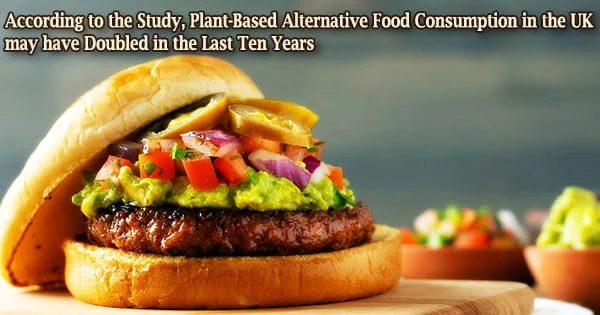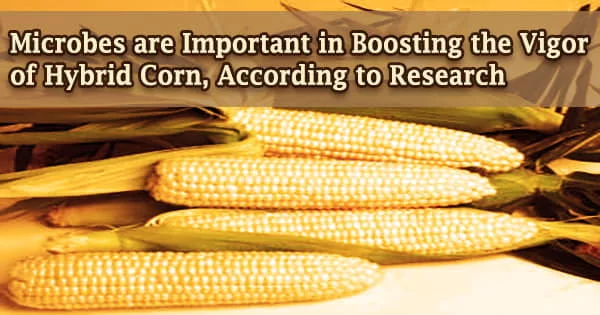According to a new study published in Science of the Total Environment, the number of UK adults reporting consuming and drinking plant-based alternative foods such as plant-based milk, vegan sausages, and vegetable burgers nearly doubled between 2008 and 2019.
The London School of Hygiene & Tropical Medicine (LSHTM), in collaboration with the University of Oxford, led the research. It is the first study on plant-based alternative foods (PBAF) consumption patterns in the United Kingdom.
Consumption data from the National Diet and Nutrition Survey 2008-20191 was used to examine trends in over 15,000 people aged 1.5 years and up. Over the course of the study, the number of persons who reported eating and drinking plant-based alternative foods nearly doubled, from 6.7 percent to 13.1 percent.
The most significant increases were seen among Generation Y (11-23 years old), Millennials (24-39 years old), and those who reported eating less meat. Women were also 46 percent more likely than men to report eating plant-based alternatives.
According to the researchers, their findings show that alternative plant-based meals are likely to play a significant part in the shift away from meat and dairy in UK diets. However, it is unknown how healthful and sustainable these alternatives are, prompting the team to call for immediate research to determine whether a strategic shift to these foods is necessary.
The willingness to reduce meat intake among populations in many European countries has increased rapidly over the past decade. Unfortunately, this does not always result into actual dietary change. The plant-based alternative foods could be a stepping stone for people that are willing to reduce meat consumption, but find it hard to fit this into their daily lives. This study shows that more and more people are applying this pathway to achieve their goals on more plant-based diets.
Dr. Pauline Scheelbeek
Dr. Pauline Scheelbeek from LSHTM and study author, said: “A global transformation towards sustainable food systems is crucial for delivering on climate change mitigation targets worldwide.”
“In high and middle-income settings, plant-based meat and dairy alternatives are increasingly being explored and developed as a strategy to reduce consumption of animal-sourced foods. However, the extent to which these foods play a role in dietary change remains largely understudied. This study helps fill that gap.”
Current global food systems and consumption patterns appear to be unsustainable for human and planetary health. Agriculture contributes for around 70% of worldwide freshwater usage, while the food system is responsible for roughly 21-37% of global greenhouse gas (GHG) emissions.
A global shift to sustainable diets is critical to meeting the Paris Agreements’ targets, and it is being widely advocated. Research has shown that replacing animal products with plant-based sources of food can significantly reduce environmental impacts and improve public health in high and moderate income countries (where diets are often high in animal-sourced foods).
The UK Climate Change Committee (UKCCC) has proposed a 20 percent decrease in high-carbon meat and dairy products by 2030, rising to a 35 percent reduction by 2050, with greater consumption of plant-based products, as part of its proposals for reducing emissions.
However, for many people, social convenience, pleasure, and ideas about the necessity of meat in the diet are obstacles to changing their diets. PBAFs may offer a solution because they are designed to resemble the flavor and texture of their animal-based equivalents while limiting changes in eating habits and culinary skills.
Dr. Scheelbeek said: “The willingness to reduce meat intake among populations in many European countries has increased rapidly over the past decade. Unfortunately, this does not always result into actual dietary change. The plant-based alternative foods could be a stepping stone for people that are willing to reduce meat consumption, but find it hard to fit this into their daily lives. This study shows that more and more people are applying this pathway to achieve their goals on more plant-based diets.”
The researchers analyzed national representative consumption data from the National Diet and Nutrition Survey for the years 2008-2019 to look at plant-based PBAF consumption patterns in the UK.
Plant-based milks were found to be the most popular plant-based alternative food among the UK population, with about 1 in 13 persons (7.4%) reporting to drink plant-based milks in 2018 and 2019, compared to 2.3 percent in 2008-2011.
Plant-based alternatives to other dairy products, such as vegan cheese and yoghurt, appear to be gaining traction at a slower pace, with only 1.2 percent of respondents reporting usage in 2018 and 2019. The researchers looked at age, socioeconomic, and geographic sub-groups in addition to overall population trends.
Plant-based alternative food consumption was significantly greater among individuals with higher incomes, indicating potential discrepancies in plant-based alternative food affordability across socioeconomic categories. Women were more likely than males to report eating plant-based alternative foods, while younger generations (13-39 years old) were more likely than older generations to do so.
The fact that individuals claiming low meat intake consumed three times as much plant-based alternative foods as those reporting high meat consumption added to the evidence that plant-based alternative foods are utilized as a direct replacement for meat and dairy.
Professor Alan Dangour from LSHTM and a study author, said:
“We are seeing a revolution in consumer patterns that could have dramatic impacts on our food systems. Our study shows just how quickly diets are changing in the UK and how willing the UK public are to adopt new foods. We must now ensure that as we transition to diets with more novel foods, the diets enhance public health and have a substantially lower impact on our planet.”
While food diaries provide an advantage in terms of accuracy over recall dietary assessment approaches, the authors admit that underreporting can occur. Due to data processing restrictions, numerous food items such as desserts, baked goods, and snacks were excluded, resulting in underestimation of consumption of some food groups, particularly dairy products and milk.
















